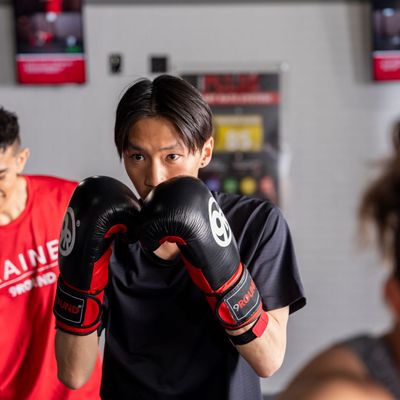Weights 101: When to Switch to Heavier Weights

In our last blog, we introduced you to our Weights 101 series and explained how you can choose the right starting weights to kick off your strength training journey. Now, we’re continuing this series with some inside tips for how you can identify when it’s time to switch to heavier weights.
Unfortunately, many people miss the mark and either increase the amount they’re lifting prematurely or they hang on to smaller weights for far too long. Knowing when it’s time to up the ante is critical if you want to continue making progress on your #strengthgains, so continue reading for some advice on when to switch to heavier weights from our 9Round Fitness Programming team!
Your Weights Are Not Challenging You
If you’re not feeling the burn after your reps, then it might be time to consider using heavier weights. You want to feel challenged during and after your workout to take full advantage of the overload principle — the process of progressively increasing your intensity to “overload the body” and create adaptations in muscle growth and definition. This can be done in several ways, including adding more reps or increasing the speed of each rep, but today we’re focusing on adding more weight to get the job done.
By the end of any given set of exercises with weights, you should only be able to complete one or two more reps before needing to rest. If you feel like you can do more than that while also maintaining proper form, then it’s a sign your weights aren’t heavy enough. Increase to the next heaviest weights to continue challenging yourself during your workouts. Don’t try to skip ahead too quickly though, as you’ll want to make sure you’re in that sweet spot of being able to keep your form on point while also working up a sweat.
Your Progress Has Reached a Plateau
When you go from being mostly inactive to working out at least three days a week at your local 9Round, it’s likely that you’ll see some exciting progress early on. However, as your body gets used to your new routine, you may notice that you aren’t making physical progress as quickly as you wanted, especially if you’re still doing exercises with the same amount of weight you started with. This is called a plateau — it’s one of the most annoying parts of any fitness journey, and it can be quite discouraging when all you want is more progress toward your goals.
But don’t sweat it! Increasing your weights to the next level is a great way to get out of plateau and kickstart your progress again. As you’re thinking about which set of weights to go for next, remember the important advice we gave in the first blog of this series: look for weights that are challenging enough you feel like you can only do a few more reps at the end of your set, but not too challenging that you sacrifice form and feel like giving out at any moment.
You’ve Mastered Your Form and Are Ready for the Next Step
We want our members to understand proper exercise form for their workout safety and efficiency — even if it means ditching weights at first and relying only on body weight until they’ve mastered each move. Once you’ve mastered your exercise form without using heavy weights or with extremely light weights, then it’s time to step things up a notch to keep improving your strength training.
When in doubt, you can always ask your Champion Kickboxing Instructor to assist you with finding a good amount of weight to help you knock out your strength goals while still maintaining proper form. Take advantage of their help and get back to crushing your #strengthgoals with total confidence!
At 9Round, we incorporate strength training into each 30-minute workout with our heavy kickboxing bags that provide resistance for every punch and kick, as well as various weights like dumbbells, kettlebells, and medicine balls throughout all nine rounds. Come see how we can help you work toward your #strengthgains today with a free session at your local studio. We can’t wait to kick it with you soon!
This article was written in conjunction with our certified 9Round Exercise and Nutrition Specialist, MacKenzie Rowand, CSCS, NASM-CNC.


